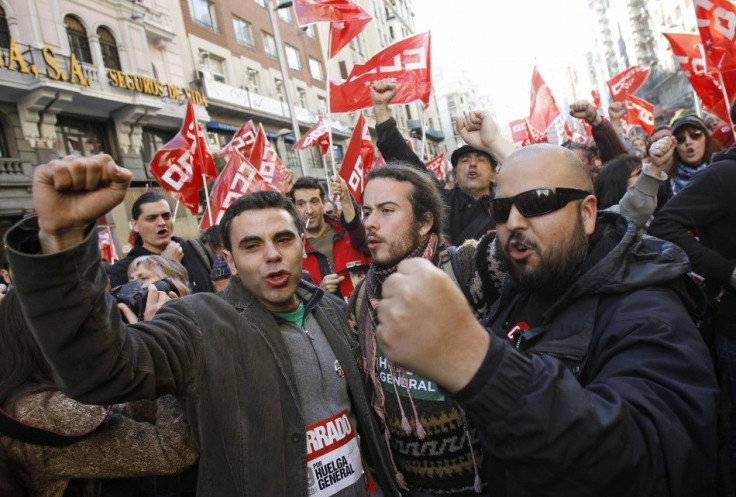Keep Your Bailout! Why Spain Doesn't Want Help (For Now)

It has been a busy few weeks for investors trying to decipher where the European debt crisis is headed.
Starting with May's elections in Greece, presidential voting in France and a referendum in Ireland last week, markets can hardly keep up with the ricochet of political knife edges and economic speculation gripping markets and driving up bond yields.
Now the focus has turned to Spain, where the debt crisis recently forced sent Liberbank, Ibercaja and Caja 3, who together hold toxic real estate assets valued at around €11.8 billion ($14.8 billion), into merger talks.
This is on top of the country's second largest bank, Bankia, last month asking for €19 billion ($23.7 billion) in bailout funds from Madrid. Estimates put the total needed to ward off the country's impending banking crisis at €80 billion ($100 billion), fuelling speculation over the last week Spain was on the cusp of following Ireland, Greece and Portugal and approaching the European Union for help.
Indeed on Tuesday, Spanish Treasury Minister Cristobal Montoro spelled out just how desperate the situation had become.
The risk premium says Spain doesn't have the market door open, he told Onda Cero radio, according to Reuters.
The risk premium says that as a state, we have a problem in accessing markets, when we need to refinance our debt.
But on Wednesday, Economy Minister Luis de Guindos threw a curve ball, announcing after talks at the European Commission that he had no immediate plans to apply for a European Financial Stability Facility bailout.
He added that any decision would have to wait until the results of an investigation by International Monetary Fund, as well as a study by an independent consultant in the banking sector, are released later this month.
The reaction in many quarters has been one of surprise.
The negative comments have also been flying thick and fast, with several chiding what they perceive as a suicidal rejection of aid.
German newspaper the Financial Times Deutschland wrote: For months, the Spanish government has refused to make use of the bailout funds. Meanwhile, it has cried out ever more loudly for help.
This is kamikaze politics, pure and simple.
In May, Der Spiegel also reported that German Chancellor Angela Merkel had pressed Spanish premier Mariano Rajoy to take money from the EFSF.
The article added that German Finance Minister Wolfgang Schäuble had also pressured his Spanish counterpart, Luis de Guindos, into accepting the loans.
But according to at least one economist, refusing a bailout may be in the country's best interest, despite what Berlin wants.
Sally Painter COO of Blue Star Strategies, a government consultancy firm in Washington D.C., said the refusal may in fact aid Madrid's desire to enter the capital markets for funding, acting as a show of strength to investors.
I think it is smart. They are limiting the negative fallout, She said.
Believing that general hysteria surrounding the collapse of the euro zone has led investors to overestimate the country's weakness, she added that inflated fears had driven Spanish bond yields to unsustainable levels.
They are not in as bad a shape as Greece and others, so they don't need a bailout.
It's all about confidence, and Spain thinks it is in better shape than the others. If you can get people to believe in them then you can re-enter the capital markets.
It is also important, according to Joe Duran, CEO of United Capital Financial Partners, to see the Spanish crisis for what it is.
I don't think it's a bailout they are after, this is not the Greek problem, he said.
What they have is a banking crisis - the cause in Spain is that no one has confidence in the banks and they need money to recapitalize their banks.
And as for today's announcement there is no immediate plan to ask for financial assistance?
Everyone knows it is not the truth, he added.
There are three ways to solve this problem.
Either confidence is restored and the money stops leaking out of the Spanish banks. Or the ECB lends the money to the banks and ends the crisis.
Their is also the possibility the Spanish government stands behind the banks and offers an unlimited line of credit.
© Copyright IBTimes 2025. All rights reserved.





















